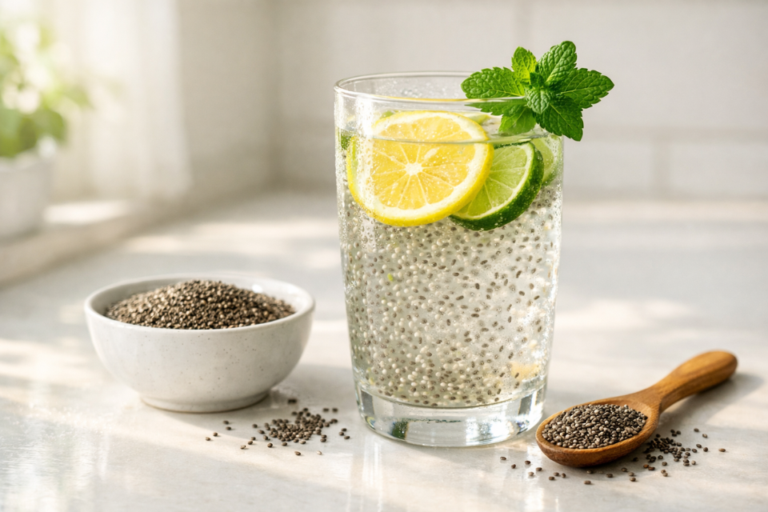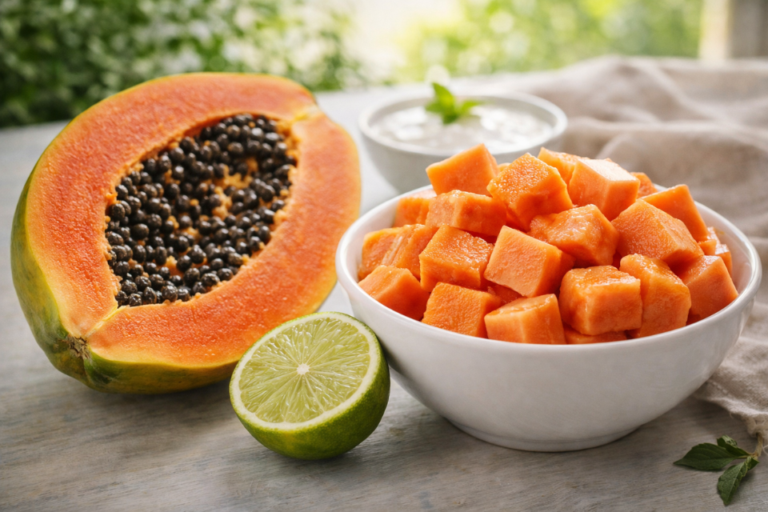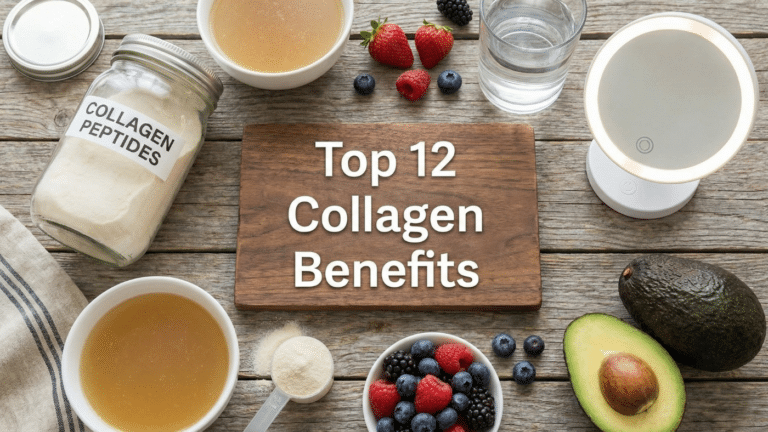Top 9 Oregano Oil Benefits

You’ve probably heard whispers about oregano oil’s healing potential, but you might not realize just how extensive its benefits truly are. This concentrated extract isn’t just another wellness trend—it’s backed by centuries of traditional use and modern scientific research. From fighting stubborn infections to supporting your cardiovascular system, oregano oil offers nine distinct advantages that could transform your approach to natural health. Here’s what you need to know about this powerful botanical ally.
Powerful Antibacterial Properties Fight Harmful Bacteria
Oregano oil’s antibacterial prowess stems from its potent bioactive compounds, particularly carvacrol and thymol, which demonstrate remarkable effectiveness against both gram-positive and gram-negative bacteria.
You’ll find this natural oil exceptionally powerful against dangerous pathogens like *Staphylococcus aureus*, including antibiotic-resistant MRSA strains, as well as *E. coli*, *P. aeruginosa*, and *Salmonella Typhimurium*.
The oil’s mechanism involves disrupting bacterial cell membranes, leading to cell death while interfering with essential metabolic processes.
With minimum inhibitory concentrations ranging from 0.005 to 0.04 μg/mL for carvacrol, you’re getting remarkable potency.
Additionally, oregano oil can inhibit bacterial communication systems, preventing biofilm formation that often makes infections harder to treat. When combined with traditional antibiotics like tobramycin, oregano oil creates synergistic effects that significantly enhance treatment effectiveness against resistant bacterial strains.
Antifungal and Antiviral Protection Against Pathogens
Beyond its remarkable bacterial-fighting capabilities, this potent essential oil demonstrates equally impressive antifungal and antiviral properties that’ll protect you against a wide spectrum of pathogenic threats.
Oregano oil’s fungicidal action effectively eliminates yeast and fungal species, including *Candida albicans* and *Aspergillus* strains. It disrupts fungal cell walls and membranes, causing cellular leakage and death. The oil’s minimum inhibitory concentration typically ranges from 1-4 mg/mL, making it comparable to pharmaceutical antifungals like nystatin.
Key antifungal mechanisms include:
- Disrupting fungal cell wall integrity and membrane permeability
- Impairing energy metabolism pathways in fungal cells
- Promoting reactive oxygen species accumulation for oxidative damage
- Suppressing mycotoxin production by harmful molds
While antiviral research remains limited, oregano oil’s phenolic compounds can potentially disrupt enveloped viruses by targeting their lipid membranes. The oil’s effectiveness against *Aspergillus flavus* is particularly significant since this species produces carcinogenic aflatoxin B1, a dangerous compound that poses serious health risks.
Rich Antioxidant Content Protects Against Free Radicals
While oregano oil’s pathogen-fighting abilities make it a formidable defense against infections, its rich antioxidant profile delivers equally powerful protection at the cellular level.
You’re getting concentrated doses of carvacrol and thymol—compounds that constitute nearly 50% of oregano’s essential oil and pack serious free radical-fighting power. Consuming foods rich in Vitamin C can further enhance your immune response and overall health.
These antioxidants neutralize reactive oxygen species that damage your cells and accelerate aging. They’re particularly effective at preventing lipid peroxidation, the process where free radicals degrade fats in your cell membranes. This protection extends to your DNA, potentially lowering cancer risk.
Your respiratory and immune systems especially benefit from oregano oil’s antioxidant action. It reduces oxidative inflammation in lung tissues while supporting your body’s natural defenses against infection-induced cellular damage. The oil also contains octacosanol, another powerful antioxidant that helps stabilize free radicals and prevent cell damage.
Anti-Inflammatory Effects Support Healing and Recovery
When inflammation strikes your body, oregano oil’s powerful compounds work systematically to calm the response and accelerate healing. The oil inhibits key inflammatory biomarkers like MCP-1, VCAM-1, and ICAM-1 in your dermal fibroblasts, reducing immune cell recruitment and localized swelling. Incorporating anti-inflammatory foods into your diet can further enhance your body’s healing process.
Carvacrol, oregano’s primary constituent, modulates gene expression related to tissue repair while preventing excessive scar formation. This compound works alongside thymol antioxidants to provide comprehensive cellular protection against inflammatory damage.
Your skin benefits greatly from oregano oil’s dual action against inflammation and bacterial infections. It reduces Propionibacterium acnes-induced inflammation, lowering redness and swelling associated with acne and dermatitis.
- Inhibits inflammatory cytokines and chemokines throughout your system
- Enhances dermal fibroblast function for faster skin regeneration
- Reduces collagen overproduction to prevent excessive scarring
- Supports immune defenses while minimizing inflammation-driven tissue damage
Promotes Digestive Health and Gut Balance
The oil’s active compound, carvacrol, effectively reduces digestive discomfort including bloating, cramping, and flatulence.
Clinical studies demonstrate oregano oil’s ability to improve symptoms of irritable bowel syndrome and diarrhea while preventing harmful bacterial overgrowth. The compound also disrupts biofilms that protect bacteria from treatment, enhancing overall gut health.
Additionally, it strengthens your intestinal barrier by increasing villus height and tight junction proteins, reducing gut permeability and limiting systemic inflammation.
May Help Lower Cholesterol Levels Naturally
Beyond supporting your digestive system, oregano oil shows promising potential for naturally managing cholesterol levels through its powerful bioactive compounds.
Research involving 48 individuals with mild hyperlipidemia demonstrated significant improvements in lipid profiles after three months of oregano supplementation. You’ll benefit from increased HDL (good) cholesterol and decreased LDL (bad) cholesterol levels.
The cholesterol-lowering effects stem from oregano oil’s active compounds like carvacrol and thymol, which provide multiple cardiovascular benefits:
- Reduce LDL cholesterol that contributes to arterial plaque buildup
- Lower inflammatory markers like C-reactive protein
- Decrease cardiovascular risk markers including apolipoprotein B
- Protect against LDL oxidation through antioxidant properties
These anti-inflammatory and antioxidant effects work together to improve your endothelial function while supporting overall heart health naturally. However, studies in broiler chickens showed that higher dosages of oregano essential oil may actually reduce HDL cholesterol levels, suggesting the importance of appropriate dosing.
Potential Weight Management and Fat Reduction Support
While research remains limited in humans, emerging evidence suggests oregano oil may offer valuable support for weight management and fat reduction.
Animal studies show oregano oil compounds can reduce excess weight in mice and block fat cell accumulation, indicating potential obesity management benefits.
The key lies in carvacrol, oregano oil’s primary bioactive compound, which has demonstrated anti-obesity effects by inhibiting adipogenesis—the formation of new fat cells. Additionally, curcumin’s anti-inflammatory effects may complement oregano oil’s benefits by further supporting metabolic health.
This compound may also help reduce visceral fat accumulation while potentially enhancing thermogenesis for improved fat burning.
Additionally, oregano oil can enhance digestive enzyme activities and support nutrient absorption, which may indirectly benefit your metabolic health. Beyond metabolic benefits, oregano oil may help reduce inflammation by inhibiting inflammatory molecules, which could further support overall weight management efforts.
However, human trials are needed to confirm these promising preliminary findings and establish ideal dosing protocols.
Cancer-Fighting Properties Show Promise in Research
Although researchers haven’t yet conducted extensive human trials, oregano oil’s cancer-fighting properties have generated significant scientific interest through laboratory and animal studies.
The oil’s primary compounds, carvacrol and thymol, demonstrate impressive anticarcinogenic effects by inducing programmed cell death in cancer cells and preventing tumor development.
These powerful compounds work by creating oxidative stress and DNA damage specifically in cancer cells while enhancing your body’s natural antioxidant defenses.
Studies show particularly promising results against melanoma, lung, liver, and breast cancer cells. Research indicates that carvacrol exhibits greater potency than thymol in laboratory settings.
- Carvacrol increases antioxidant enzymes like SOD, CAT, and GPx
- Compounds cause cell cycle arrest, preventing cancer cell division
- Oregano extract triggers apoptosis in melanoma cells
- Natural compounds show less toxicity than conventional chemotherapy
More human research is needed to fully understand oregano oil’s therapeutic potential.
Respiratory Health Benefits for Breathing and Infections
Your respiratory system faces constant challenges from pathogens, inflammation, and oxidative stress, but oregano oil‘s potent compounds offer extensive protection for your lungs and airways.
Carvacrol, the oil’s primary active compound, greatly reduces inflammatory markers like IL-1β, IL-4, and IL-8 that contribute to asthma and bronchitis symptoms. You’ll benefit from its powerful antioxidants—carvacrol, thymol, and octacosanol—which combat free radicals and prevent cellular damage in your respiratory tissues.
Oregano oil’s antibacterial properties effectively target respiratory pathogens, including antibiotic-resistant strains like Staphylococcus aureus. It also provides antifungal protection against respiratory infections. The oil’s phenolic compounds contribute significantly to its antimicrobial effects against various pathogens.
Research shows carvacrol supplementation improves lung function while reducing respiratory symptoms. Traditional use supports its effectiveness for bronchitis, coughing, and breathing difficulties by easing mucus congestion and supporting clearer airways through combined anti-inflammatory and antimicrobial actions.
Conclusion
You’ve discovered oregano oil’s impressive range of health benefits, from fighting bacteria and viruses to supporting your digestive system and respiratory health. It’s clear this natural remedy can boost your immune system, reduce inflammation, and potentially help with weight management and cholesterol levels. Don’t overlook oregano oil’s antioxidant power and promising cancer-fighting properties. Consider adding this versatile oil to your wellness routine for extensive health support.
References
- https://www.webmd.com/diet/oregano-oil-good-for-you
- https://www.health.com/health-benefits-of-oil-of-oregano-7508588
- https://www.healthline.com/nutrition/9-oregano-oil-benefits-and-uses
- https://pmc.ncbi.nlm.nih.gov/articles/PMC6152729/
- https://www.ebsco.com/research-starters/health-and-medicine/oregano-oils-therapeutic-uses
- https://wvj.science-line.com/attachments/article/79/WVJ13(4)
- https://www.frontiersin.org/journals/pharmacology/articles/10.3389/fphar.2025.1579283/full
- https://www.aimspress.com/article/doi/10.3934/biophy.2024027?viewType=HTML
- https://academic.oup.com/femspd/article/53/2/190/495620
- https://pmc.ncbi.nlm.nih.gov/articles/PMC2981246/






